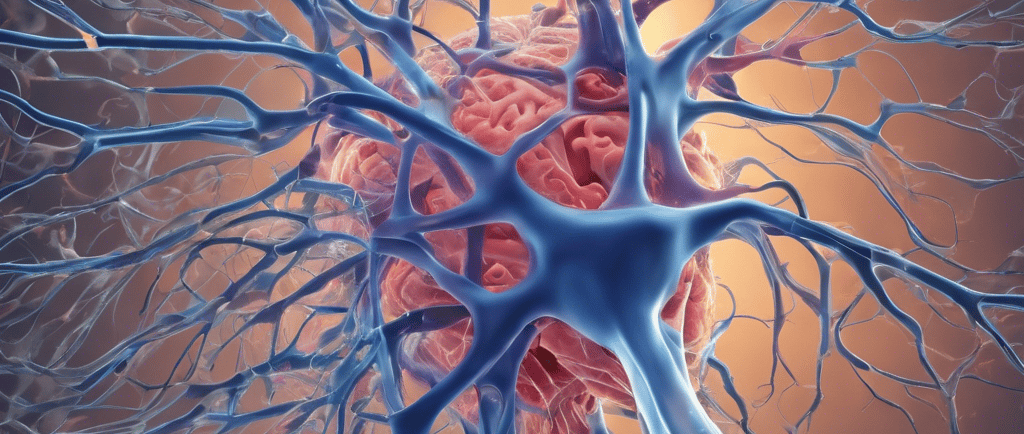The Role of Rehabilitation in Enhancing Functional Outcomes and Quality of Life After Traumatic Brain Injury
Rehabilitation following a traumatic brain injury (TBI) necessitates a collaborative effort among a diverse team of healthcare professionals. This interdisciplinary approach is essential in devising a comprehensive rehabilitation plan that addresses the multifaceted needs of the patient. Each professional brings unique expertise to the table, contributing to the patient's journey toward recovery, improved functional outcomes, and enhanced quality of life.
PATIENT CARE
Viswanath M. Aluru, M.D.
2/18/20255 min read


Understanding Traumatic Brain Injury and Its Impact
Traumatic Brain Injury (TBI) is defined as an alteration in brain function caused by an external force, which can range from mild concussions to severe brain damage. TBIs predominantly occur due to various common incidents, including falls, traffic accidents, assaults, and sports-related injuries. According to recent studies, falls are the leading cause of TBIs across all age groups, particularly among the elderly, while road traffic accidents account for a significant number of cases, especially among younger populations. It is crucial to recognize the high-impact nature of these incidents, as they can lead to profound consequences for the affected individuals.
The ramifications of TBI often manifest across a spectrum of deficits that significantly impact an individual’s daily life. Physical challenges may include motor dysfunction, balance issues, and fatigue, which hinder mobility and basic self-care activities. Cognitive impairments are also prevalent, encompassing difficulties with attention, memory, problem-solving, and executive functions. Such cognitive deficits can complicate the re-engagement in work or academic endeavors, leading to ongoing challenges in returning to pre-injury life.
Behavioral and emotional complications are vital aspects of TBI as well. Individuals may experience a range of emotional disturbances including depression, anxiety, and mood swings, which can create barriers to social reintegration. Behavioral changes, such as impulsivity or aggression, can further complicate interpersonal relationships and hinder rehabilitation efforts. Taken together, these diverse challenges emphasize the importance of comprehensive rehabilitation strategies tailored to address the multifaceted effects of traumatic brain injury.
Understanding the complexity of TBI and its wide-ranging impact on function and quality of life is essential. This knowledge lays the groundwork for appreciating the role that rehabilitation plays in facilitating recovery and supporting individuals on their journey towards regain independence and enhancing their overall quality of life.
The Continuum of Rehabilitation: From Neuro ICU to Community Reintegration
The journey of rehabilitation for individuals who have sustained a traumatic brain injury (TBI) begins in the neuro intensive care unit (ICU), where immediate medical intervention is critical. In this acute phase, the primary objective is to stabilize the patient's condition and prevent secondary brain injuries. Healthcare professionals monitor vital signs and neurologic status closely, ensuring that any changes are promptly addressed. This foundational stage sets the groundwork for subsequent rehabilitation processes.
Following stabilization in the ICU, patients typically transition to acute care. During this period, the focus shifts towards the management of medical complications, alongside initiating early therapeutic interventions. Multidisciplinary teams, including neurologists, nurses, physical therapists, and occupational therapists, collaborate to assess the patient's functional capabilities and needs. Their collective goal is to create an individualized rehabilitation plan that optimizes recovery prospects and prepares the patient for the next phase.
Acute rehabilitation marks a pivotal stage in the rehabilitation continuum. Here, patients engage in intensive rehabilitation therapies tailored to improve functional mobility, cognitive skills, and self-care abilities. This structured program is typically conducted in a specialized rehabilitation facility, where patients benefit from round-the-clock support. Evidence demonstrates that intensive rehabilitation can significantly enhance functional outcomes, as patients work toward regaining independence. Rehabilitation specialists employ a variety of therapeutic modalities, including physical therapy, occupational therapy, speech therapy, and neuropsychological support, to ensure comprehensive care.
As patients progress, they gradually transition to outpatient care, which focuses on maintaining progress made during rehabilitation. This stage emphasizes community reintegration, providing individuals with the tools necessary to navigate daily life activities effectively. Ongoing therapy, support groups, and community resources play a vital role in sustaining recovery and addressing any emerging challenges post-discharge. Through this continuum of care—from neuro ICU through community reintegration—patients achieve not only improved functional outcomes but also a greater quality of life.
Strategies for Minimizing Secondary Injuries and Enhancing Recovery
Rehabilitation following a traumatic brain injury (TBI) is critical for optimizing recovery and minimizing the risk of secondary injuries. One of the primary strategies employed during the rehabilitation process involves the management of intracranial pressure (ICP), which is vital for preventing further complications. Elevated ICP can lead to additional brain damage, so medical teams often implement strategies such as monitoring ICP levels closely, utilizing elevation of the head to promote venous return, and employing medications like diuretics to control fluid accumulation. A focused approach on ICP management can significantly enhance the potential for functional recovery.
In conjunction with ICP control, rehabilitation efforts also emphasize the prevention of medical complications such as infections, pulmonary issues, and venous thromboembolism. Proactive nursing care, including early mobilization and respiratory therapy, plays a pivotal role in mitigating these risks. By maintaining a vigilant approach to overall health during recovery, rehabilitation teams support optimal conditions for brain healing and functional improvements.
Moreover, minimizing reliance on medications is a strategic focus in modern rehabilitation practices. The overuse of pharmacological interventions can hinder the healing process and may also lead to adverse side effects. By carefully titrating medications and employing non-pharmacological interventions, such as physical therapy and occupational therapy, healthcare providers can facilitate more effective recovery pathways for TBI patients. Tailoring therapeutic interventions to individual patient needs allows for a more holistic approach, enhancing both functional outcomes and overall quality of life.
Employing these strategies in a cohesive rehabilitation program fosters an environment that not only encourages recovery but actively works to mitigate the challenges associated with brain injuries. A proactive stance on managing secondary injuries, paired with a balanced approach to medications, ultimately empowers TBI patients on their journey toward regaining independence and improving their quality of life.
The Interdisciplinary Approach to Rehabilitation
Rehabilitation following a traumatic brain injury (TBI) necessitates a collaborative effort among a diverse team of healthcare professionals. This interdisciplinary approach is essential in devising a comprehensive rehabilitation plan that addresses the multifaceted needs of the patient. Each professional brings unique expertise to the table, contributing to the patient's journey toward recovery, improved functional outcomes, and enhanced quality of life.
At the forefront of TBI rehabilitation are physiatrists, or rehabilitation physicians, who oversee the overall rehabilitation process. They play a critical role in diagnosing the extent of the injury, designing personalized treatment plans, and coordinating the various disciplines involved. Complementing their efforts, physical therapists focus on restoring mobility and strength through targeted exercises, ensuring patients regain their physical independence to the greatest extent possible.
Occupational therapists also contribute significantly by assisting patients in relearning daily activities, such as dressing or cooking, which are essential for sustaining independence. The integration of speech therapists is equally crucial, as communication difficulties often accompany TBI; their expertise aids patients in improving speech, language, and swallowing functions.
Furthermore, neuropsychologists offer invaluable support by assessing cognitive impairment and providing interventions that foster mental health and emotional stability. They work closely with nursing staff, who are instrumental in providing continuous care and monitoring the patient's progress. This constant collaboration among healthcare professionals not only supports the patient's physical and cognitive recovery but also addresses social and emotional aspects, making the rehabilitation process more holistic.
In conclusion, the interdisciplinary approach to TBI rehabilitation showcases the importance of teamwork in facilitating recovery. It ensures that the diverse needs of patients are met through specialized care, ultimately leading to improved functional outcomes and enhanced quality of life.
Enhancing functional outcomes and quality of life after brain injury!
#neurotrauma #traumaticbraininjury #neurorecovery #headinjury #outcomes #qualityoflife #neurorehabilitation
